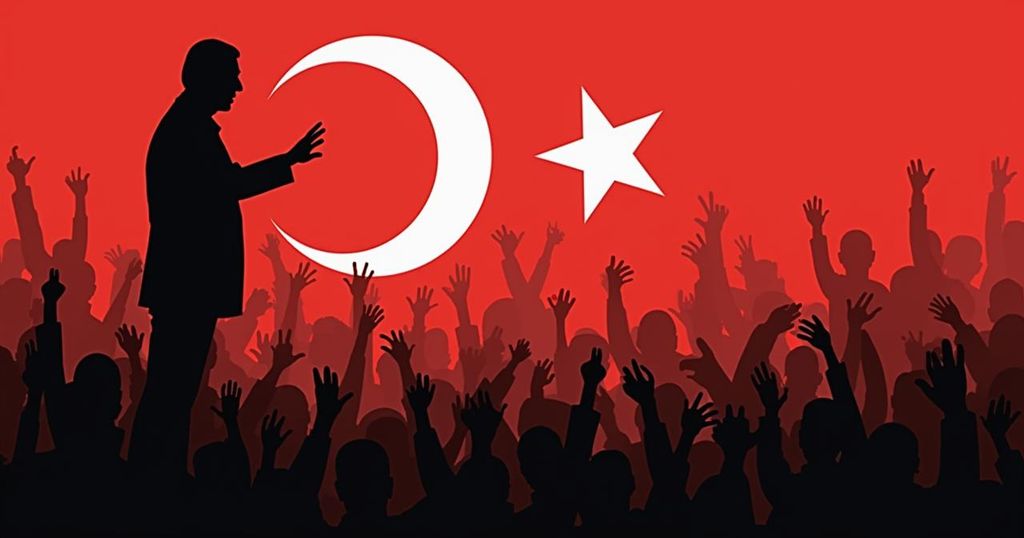Tunisia Votes in Presidential Election Against a Backdrop of Repression
Tunisia’s presidential election, taking place amidst political repression, is likely to see incumbent Kais Saied continue his rule, with only two opposition candidates in contention. The electoral landscape has been marred by the barring of 14 hopefuls and the imprisonment of key critics. Voter apathy prevails as economic hardship casts a shadow over the electoral process, which many see as devoid of genuine choice.
Tunisia is conducting its presidential election on Sunday amidst an environment characterized by repression, where incumbent President Kais Saied is anticipated to secure a second term. The electoral process notably features only two opposition candidates: Zouhair Maghzaoui, a former lawmaker who supported Saied’s controversial consolidation of power in 2021, and Ayachi Zammel, a businessman currently imprisoned on allegations related to forgery to qualify for the election. The election commission of Tunisia has barred 14 potential candidates, undermining the democratic process and raising concerns about the legitimacy and fairness of the election. The political landscape in Tunisia has deteriorated since Saied’s ascendance to power in 2019, following a decade of democratic governance that gave the nation its reputation as the cradle of the Arab Spring. The impending elections are perceived as a significant step toward entrenching autocratic rule, as many prominent opposition figures remain incarcerated. Polling stations are set to open at 8:00 AM and will close at 6:00 PM, with preliminary results expected to be released shortly thereafter. However, the absence of vibrant campaigning, coupled with widespread public dissatisfaction over the economic situation, has led to a pervasive sense of apathy among voters. A notable sentiment was echoed by a young man from Tunis who expressed disillusionment, stating that participating in the election felt “useless.” As the election date approaches, the air of resignation grows stronger, encapsulated by the opinion of the International Crisis Group, which indicated that the lack of viable alternatives to Saied has deeply disheartened the electorate. The forthcoming mandate for Saied is feared to exacerbate the socio-economic crisis rather than ameliorate it, as public protests against his regime highlight the growing discontent within the populace. In the lead-up to the election, Saied has framed the vote as essential for national reconstruction and the fight against alleged conspiratorial threats, while the majority of citizens remain skeptical about any transformative outcomes from this election.
The backdrop of Tunisia’s presidential election is marked by significant political repression and a dire socio-economic context. After the Arab Spring, Tunisia’s path toward democracy has faced various setbacks, especially following Kais Saied’s power consolidation in 2021, where he rewrote the constitution in a manner that concentrates authority in the presidency. The ongoing detention of dissenters and political opponents, along with the disqualification of numerous candidates, has raised alarms about the state of democracy in the country, which had once been celebrated as a beacon of hope in the region. With the electoral commission restricting candidacies and the pervasive economic hardship affecting the populace, the elections are perceived not as a promise of change, but rather as a mechanism for Saied to solidify his grip on power. The international response, particularly from human rights organizations, underscores the severity of repression, with large numbers of individuals imprisoned on political grounds. This environment has culminated in low voter enthusiasm and widespread disillusionment, despite the formal structure of an electoral process at play.
In summary, Tunisia’s presidential election emerges as a stark reflection of the country’s struggle with political oppression and economic despair. With a significantly reduced opposition and no meaningful alternatives to President Kais Saied, the electoral process risks being a mere façade, serving to legitimize an increasingly authoritarian rule. The mood among voters embodies a growing sentiment of resignation, where many view participation in the election as futile amidst mounting socio-economic challenges and repression of dissent.
Original Source: www.france24.com




Post Comment